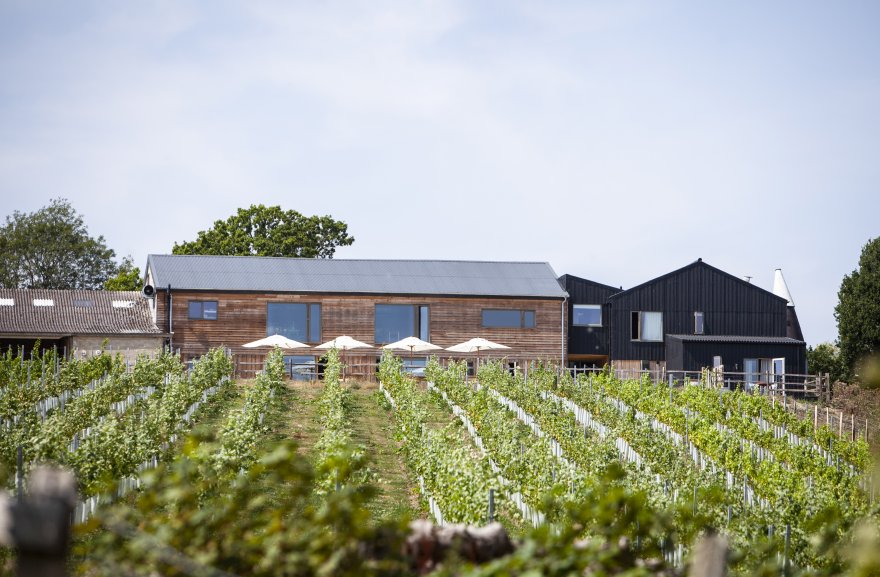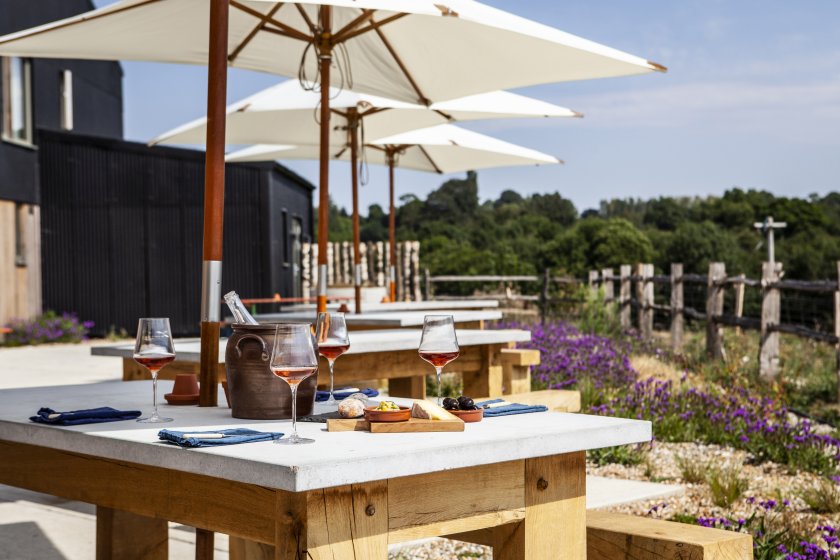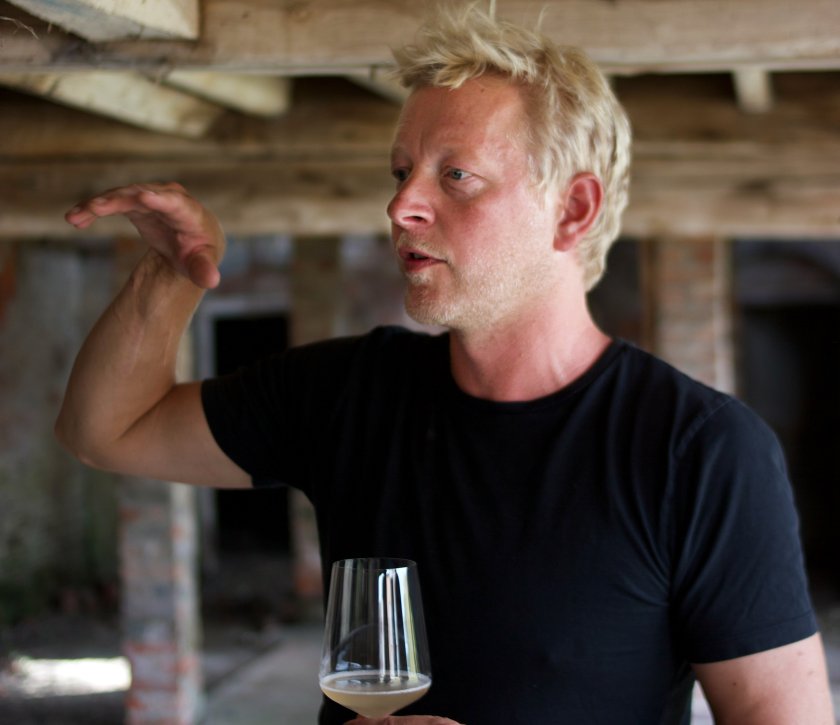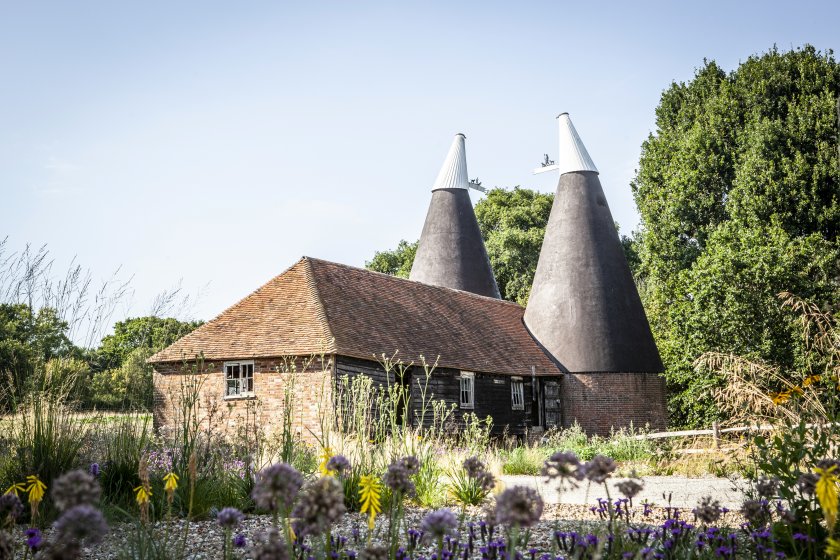
Winemaking has proven to be a fruitful venture on one diversified farm near Rye, in East Sussex.
Ben Walgate and co-founder Terence Kearley planted a vineyard on the 150 acre farm in 2017, creating their business Tillingham Wines.
They now sell a wide range of more than 20 different English wines and the farm boasts a handful of thriving diversifications, including a restaurant, hotel, and shop.
The pair aim to produce their wines using organic and biodynamic methods and run the rest of their farming operations in the same way.
Ben has always had a strong connection to agriculture having grown up on a mixed farm in the Lincolnshire Wolds, while his mother was running a wine bar.
“I was always in and around hospitality growing up, and I worked in a handful of pubs and restaurants whilst I was at school,” he said.
“I then went away to university and studied classics. Whilst I was there I got particularly interested in wine and when I got to the end of my MA I started buying and selling some.”
He spent the following summer travelling around Europe visiting different vineyards, and from there he became set on a future in the wine industry.
Ben said: “In 2001 I enrolled in a wine production course at Plumpton College, but during my second year I left to run my own organic and biodynamic wine importation business, I had a website and sold wines in retail and wholesale.”
He then went on to work for a handful of businesses in the wine industry including Majestic and a small vineyard on the Isle of Wight, but that was never his long-term ambition.
“It gave me a really good handle of how the wine industry operated, but the plan was always to get my teeth into making my own wine,” he added.
Tillingham
In the summer of 2016 Ben came across Terence Kearley who owned a farm near Rye and had been thinking of planting a vineyard for some time.
“I reached out to him and went down and visited the place. I saw the setup and the farm buildings and thought it was ideal; they were essentially a blank canvas for wine production and tourism opportunities.
"It was not long after that, in early 2017, that we really got started," Ben explained.

They have put a focus on employing sustainable and regenerative methods: “I always wanted to incorporate an organic and biodynamic way of thinking into the farming, and that is what we have been doing.
“The farm is in biodynamic conversion, we have avoided chemicals and herbicides and just tried to build soil health, organic matter levels, and biodiversity.
"We are also doing things like grazing our cattle and sheep in amongst the vines to try and maintain a holistic system,” he said.
In 2017 the pair began planting their vineyard which now covers 10 hectares, however, the vines take three years to mature.
In the meantime they have been producing wines using bought in grapes: “It has been experimental, trying out lots of different methods, and it has gone from strength to strength.
"Unfortunately, there is not a great deal of organic fruit available to buy in England, so it had been about 80% conventional and 20% organic.
"It is not ideal, but it was necessity to be buying the grapes and getting some wines out there," Ben said.
Now that some of the vines have reached maturity, they have begun to start producing wine from their own grapes.
“We have three wines coming out this year which are produced from our own fruit,” he explained.
“There are twenty-two wines, which is a lot but there are a wide variety of different types of wine, and each one has it’s own identity.
"Two-thirds of our wine is either sold by us direct to the public or it goes to a UK distributor, and the other third is exported across the world.”
Tourism
There is far more to Tillingham than just wine production, as diversification was always an integral part of Ben's plan.
"Just growing grapes to buy and sell wine is a business plan which takes a long time to start generating profit," he said.

They now have a small restaurant, a shop, hotel, and wine bar on site, which has made the farm a hub for tourism and has developed a strong base of loyal customers.
“Having all of these ventures created a way of generating a profitable income whilst the wine business is not, so it is really a way of getting that side of the business off the ground."
However, he also said that the coronavirus shutdown has hit these diversifications hard.
“The bottom line is that the pandemic has not been great for us, but it could have been an awful lot worse,” Ben said.
“Due to the demand for staycations last summer, when we were open people were rally driven here.
"Going into this summer, we are well prepared and more knowledgeable about the tourism industry.”
The pandemic has also given the team at Tillingham time to begin growing their own vegetables as part of their sustainable approach.
Ben explained: “There is a Victorian walled garden here that has not really been used for food production in a concerted way for a long time.
"We had the opportunity to take it on and will this year grow the lion share of the vegetables and herbs for the restaurant ourselves.

"Our chef team have been able to run the garden during the pandemic, which I do not think would have been feasible if the restaurant was fully up and running.”
Long-term vision
Ben said that he and Terence are still only in the early stages of what is a very long-term business plan.
“I want to keep refining the farm and investing in the agricultural side of the business, so that it really sings. We still have a long way to go with that,” he said.
“From a winemaking perspective, we still really need to get to know our soils, whilst the wider vision is to build up Tillingham to be creating successful wines that are well known across the world”.
